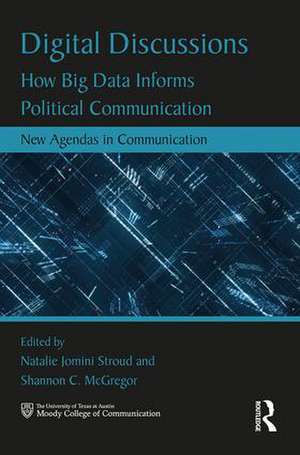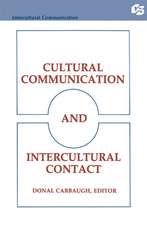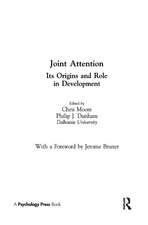Digital Discussions: How Big Data Informs Political Communication: New Agendas in Communication Series
Editat de Natalie Jomini Stroud, Shannon McGregoren Limba Engleză Paperback – 21 noi 2018
Preț: 361.08 lei
Nou
Puncte Express: 542
Preț estimativ în valută:
69.09€ • 72.14$ • 57.05£
69.09€ • 72.14$ • 57.05£
Carte tipărită la comandă
Livrare economică 15-29 aprilie
Preluare comenzi: 021 569.72.76
Specificații
ISBN-13: 9780815381860
ISBN-10: 0815381867
Pagini: 210
Ilustrații: 5 Tables, black and white
Dimensiuni: 152 x 229 x 11 mm
Greutate: 0.25 kg
Ediția:1
Editura: Taylor & Francis
Colecția Routledge
Seria New Agendas in Communication Series
Locul publicării:Oxford, United Kingdom
ISBN-10: 0815381867
Pagini: 210
Ilustrații: 5 Tables, black and white
Dimensiuni: 152 x 229 x 11 mm
Greutate: 0.25 kg
Ediția:1
Editura: Taylor & Francis
Colecția Routledge
Seria New Agendas in Communication Series
Locul publicării:Oxford, United Kingdom
Public țintă
Postgraduate and UndergraduateCuprins
Chapter 1: Big Data in Political Communication
Natalie J. Stroud & Shannon McGregor
Chapter 2: Normalizing Digital Trace Data
Andreas Jungherr
Chapter 3: Everything Old is New Again: Big Data and Methodological Transparency
Leticia Bode
Chapter 4: Ignorance or Uncertainty: How the "Black Box" Dilemma in Big Data Research May "Misinform" Political Communication
Lei Guo
Chapter 5: Why Don’t Tweets Consistently Track Elections? Lessons from Linking Twitter and Survey Data Streams
Josh Pasek and Jake Dailey
Chapter 6: Inferring Individual-Level Characteristics from Digital Trace Data: Issues and Recommendations
Deen Freelon
Chapter 7: The Technical, the Personal, and the Political: Understanding Journalists and News Users’ Engagement in the New York Times Comments Section
Ashley Muddiman
Chapter 8: Is Yik Yak a Platform for Political Communication? Exploring College Students’ Communication on an Emergent Social Media Platform
Chris Vargo and Toby Hopp
Chapter 9: Data-Driven Campaigning
Jesse Baldwin-Philippi
Chapter 10: "Little Marco," "Lyin’ Ted," "Crooked Hillary," and the "Biased" Media: How Trump Used Twitter to Attack and Organize
Ayellet Pelled, Josephine Lukito, Fred Boehm, JangHwan Yang, and Dhavan Shah
Natalie J. Stroud & Shannon McGregor
Chapter 2: Normalizing Digital Trace Data
Andreas Jungherr
Chapter 3: Everything Old is New Again: Big Data and Methodological Transparency
Leticia Bode
Chapter 4: Ignorance or Uncertainty: How the "Black Box" Dilemma in Big Data Research May "Misinform" Political Communication
Lei Guo
Chapter 5: Why Don’t Tweets Consistently Track Elections? Lessons from Linking Twitter and Survey Data Streams
Josh Pasek and Jake Dailey
Chapter 6: Inferring Individual-Level Characteristics from Digital Trace Data: Issues and Recommendations
Deen Freelon
Chapter 7: The Technical, the Personal, and the Political: Understanding Journalists and News Users’ Engagement in the New York Times Comments Section
Ashley Muddiman
Chapter 8: Is Yik Yak a Platform for Political Communication? Exploring College Students’ Communication on an Emergent Social Media Platform
Chris Vargo and Toby Hopp
Chapter 9: Data-Driven Campaigning
Jesse Baldwin-Philippi
Chapter 10: "Little Marco," "Lyin’ Ted," "Crooked Hillary," and the "Biased" Media: How Trump Used Twitter to Attack and Organize
Ayellet Pelled, Josephine Lukito, Fred Boehm, JangHwan Yang, and Dhavan Shah
Notă biografică
Natalie Jomini Stroud is an associate professor in the Department of Communication Studies and the School of Journalism, Director of the Center for Media Engagement, and Assistant Director of Research at the Annette Strauss Institute for Civic Life in the Moody College of Communication at the University of Texas at Austin. Her research focuses on selective exposure, media effects, and the role of journalism in a democracy.
Shannon C. McGregor is an assistant professor in the Department of Communication at The University of Utah. Her research interests center on political communication, social media, public opinion, gender, news, and data. Her research has been published in the Journal of Communication, Political Communication, New Media & Society, Information, Communication & Society, Social Media + Society, and the Journal of Broadcasting & Electronic Media.
Shannon C. McGregor is an assistant professor in the Department of Communication at The University of Utah. Her research interests center on political communication, social media, public opinion, gender, news, and data. Her research has been published in the Journal of Communication, Political Communication, New Media & Society, Information, Communication & Society, Social Media + Society, and the Journal of Broadcasting & Electronic Media.
Descriere
The scholars involved in Digital Discussions represent forward thinkers who aim to inform the study of political communication by analyzing the behavior of and messages left by citizens, elites, and journalists in digital spaces. It is critical reading for those studying and working in communication studies with a focus on big data.



























